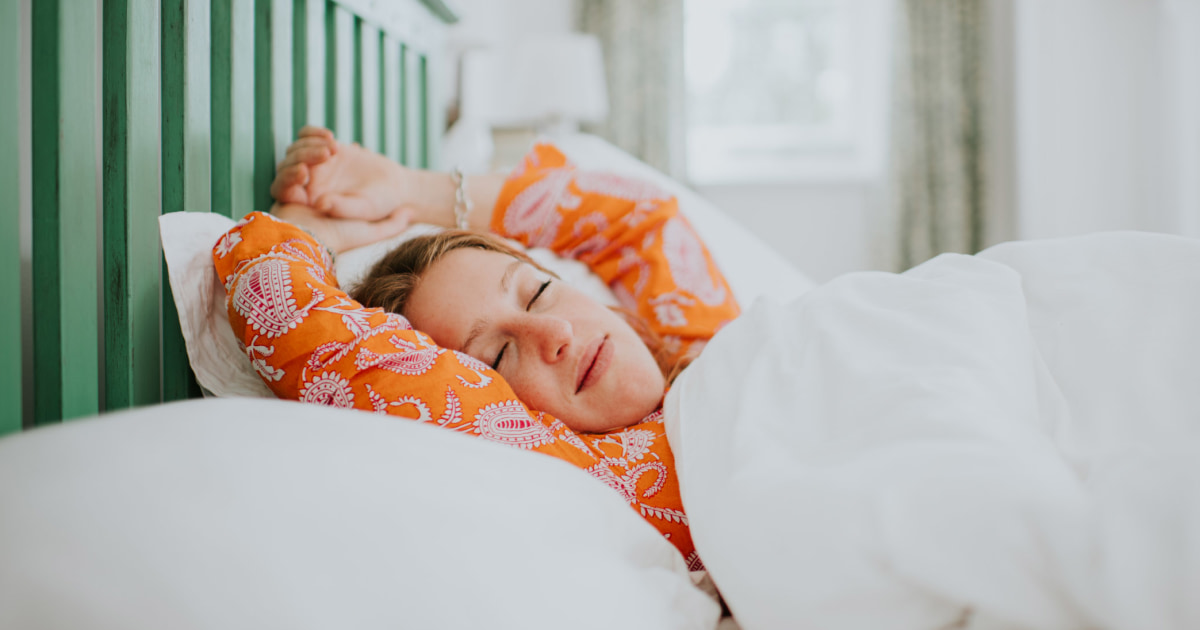Everyone’s guilty of hitting the snooze button first thing in the morning from time to time. But the reason you feel groggy and under-rested when you wake up may actually be your bedtime routine.
What you do before your head hits the pillow makes all the difference, especially when the weather shifts. As the seasons change from summer to fall, so can your sleep habits, sleep specialist and clinical psychologist Michael Breus, Ph.D., said in a Sept. 23 segment on TODAY.
As this transition happens, “a couple big things happen when it comes to sleep. We have less light, and we have cooler temperatures, both of which can help with sleep but makes it a little bit difficult to wake up in the morning,” Breus explained.
Luckily, you’re not doomed to sleepless nights long term. Breus offered one sleep hygiene routine that will transform bedtime and leave you feeling refreshed when the sun comes up.
The 3-2-1 rule
There are three things you should cut out before bed in order to achieve a better night’s sleep. Breus broke down what they are and when to quit them with these simple guidelines that make up the 3-2-1 rule for sleep:
- Three hours before you go to sleep, stop drinking alcohol.
- Two hours before you go to sleep, stop eating food.
- One hour before you go to sleep, stop drinking fluids.
Avoid blue light, too
Breus knows it can be soothing for some people to fall asleep with the TV on, but he recommends not looking at the TV, or any other screens, before bed if you can. Close your eyes, set a timer for the TV to turn off, and let the background noise lull you to sleep.
Lower the temperature
“The cooler the better,” said Breus. As the weather cools down, crack open a window and notice how fast you drift off.
Studies show excessive heat or cold cause an uptick in wakefulness when you’re trying to rest. So, find the optimal temperature that’s just cool enough for you to fall asleep and stay asleep.
Limit exercise before bed
“One of the things you have to worry about is if you exercise right before bed, you increase your core body temperature,” says Breus.
“Remember, your body wants to cool as it falls asleep.” So, he recommends avoiding exercise within four hours of bedtime.
4-7-8 breathing to fall back asleep
When you’re wrestling with a restless night, Breus recommends another method to get you back to sleep: the 4-7-8 breathing technique to slow the heart rate and relax you.
- Inhale for four seconds
- Hold your breath for seven seconds
- Exhale for eight seconds
The method was developed by Dr. Andrew Weil to help Navy SEALs calm themselves down.
“I use this right before I get on stage,” said Breus. “This is a great technique you can use all the time whenever you really want to.”
Develop a wake-up routine
“Wake up at the same time, if you can, seven days a week,” says Bruen. “If you can keep that steady, that makes your melatonin go at the right time every single night.”
What you do right after you wake up is a big deal, too. Bruen recommends getting 15 minutes of sunshine as soon as you wake up so that the melatonin release will shut off — plus, you’ll get some much-needed vitamin D.
Read the full article here
